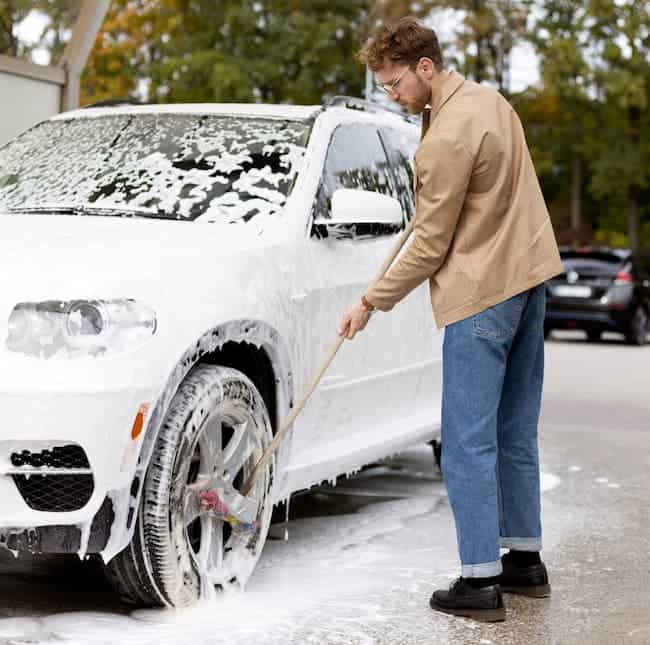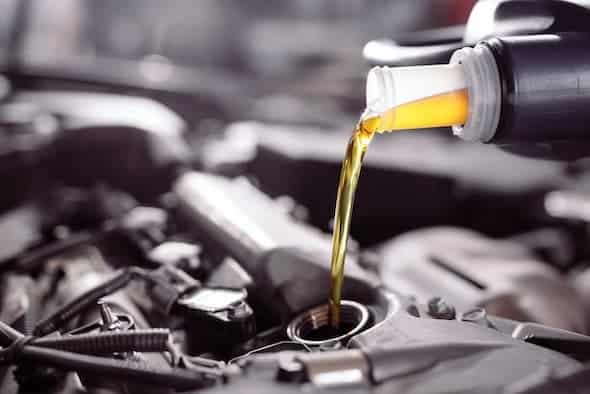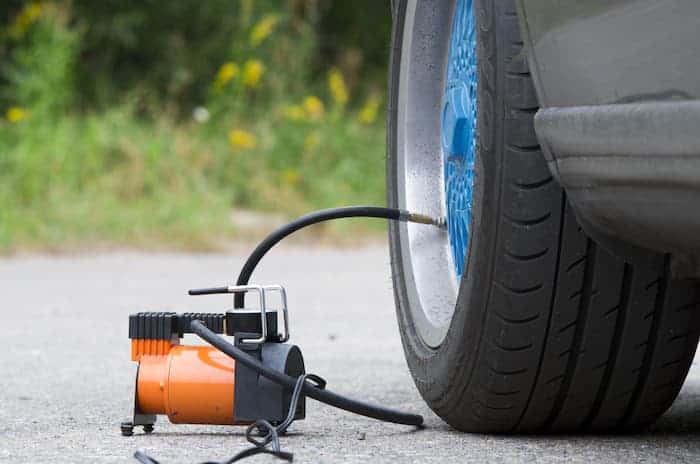Washing your car is a crucial aspect of vehicle maintenance. But how often should you wash your car? The answer may not be as straightforward as you think. In this article, we’ll explore the factors that affect car washing frequency, the benefits of regular car washes, and some helpful tips and techniques.
Table of Contents
Toggle- Factors Affecting Car Washing Frequency
- Benefits of Regular Car Washing
- Recommended Car Washing Frequency
- Car Washing Tips and Techniques
- Choosing the Right Car Wash Method
- DIY Car Washing Tips
- Use a dedicated car wash soap, not dish soap or other household cleaners, which can damage your paint.
- Use a microfiber wash mitt or spongeto avoid scratching the paint.
- Wash your car in a shaded area to prevent water spots and soap residue from drying too quickly on the surface.
- Rinse your car thoroughly before and after washing to remove loose dirt and prevent scratches.
- Dry your car using a microfiber towel or chamois to avoid water spots.
- When to Seek Professional Help
- Conclusion
Factors Affecting Car Washing Frequency
The frequency at which you should wash your car depends on several factors, including location, driving habits, and exposure to the elements.
Location and Climate
The area where you live and the climate you experience play a significant role in determining how often you should For example, if you live in a coastal region with salty air, you’ll need to wash your car more frequently to prevent salt accumulation and corrosion. On the other hand, if you reside in a dry, dusty environment, washing your car more often will help remove dust and dirt buildup that can scratch the paint.
Driving Habits
Your driving habits also influence how often you should wash your car. If you drive on dirt or gravel roads frequently, you’ll need to wash your car more often to remove the dirt and debris that can damage your vehicle’s paint and undercarriage. City drivers should also consider washing their cars regularly to remove pollutants and grime from urban environments.
Exposure to Elements
Your car’s exposure to the elements, such as sun, rain, snow, and road chemicals, can impact how often you should wash it. Prolonged exposure to harsh weather conditions and contaminants can cause your vehicle’s paint to fade, chip, or rust.
Benefits of Regular Car Washing
Maintaining a clean car comes with several benefits that extend beyond mere aesthetics.
Maintaining the Car’s Appearance
Regular car washing helps preserve your vehicle’s appearance by removing dirt, dust, and other contaminants that can dull the paint and make your car look older than it is. A clean car also reflects light better, giving it a shiny, polished appearance.
Preserving the Car’s Value
Keeping your car clean helps maintain its resale value. A well-maintained vehicle tends to fetch a higher price on the market compared to a car with paint damage, rust, or other cosmetic issues. Regular washing helps prevent these issues and ensures your car looks its best when it’s time to sell or trade it in.
Preventing Rust and Damage
Washing your car regularly prevents the buildup of dirt, grime, and road salt that can cause rust and damage to the paint and undercarriage. A thorough wash removes these contaminants and protects your vehicle’s metal components from corrosion.
Recommended Car Washing Frequency
There’s no one-size-fits-all answer to how often you should wash your car, but here are some general guidelines based on different scenarios:
Daily Drivers
If you drive your car every day, it’s a good idea to wash it at least once every two weeks. This helps remove the buildup of dirt, grime, and contaminants that can accumulate from daily use.
Garage-Kept Vehicles
If your car is mostly kept in a garage and driven less frequently, you can wash it once every three to four weeks. This keeps the vehicle clean and prevents the buildup of dust and debris that can settle on it even when it’s not being driven.
Seasonal Recommendations
During winter months, when roads are treated with salt and other chemicals, it’s essential to wash your car more frequently, such as once a week, to prevent corrosion. In the spring and fall, when pollen levels are high, washing your car every two weeks can help keep your paint clean and free of allergens.
Car Washing Tips and Techniques
Now that you know how often to wash your car, let’s look at some tips and techniques to ensure the best results.
Choosing the Right Car Wash Method
There are several car wash methods available, including hand washing, automated car washes, and touchless car washes. Each has its pros and cons, so choose the method that best suits your needs, budget, and available time.
DIY Car Washing Tips
If you prefer washing your car yourself, follow these tips to ensure a thorough clean:
Use a dedicated car wash soap, not dish soap or other household cleaners, which can damage your paint.

Use a microfiber wash mitt or spongeto avoid scratching the paint.

Wash your car in a shaded area to prevent water spots and soap residue from drying too quickly on the surface.

Rinse your car thoroughly before and after washing to remove loose dirt and prevent scratches.

Dry your car using a microfiber towel or chamois to avoid water spots.

When to Seek Professional Help
If you’re short on time, lack the proper equipment, or face challenging cleaning situations like heavy tar, sap, or road paint, consider seeking professional help. A professional detailer has the experience, tools, and knowledge to handle these issues without causing damage to your vehicle.
Conclusion
Determining how often to wash your car depends on factors like location, driving habits, and exposure to the elements. Regular car washing helps maintain your vehicle’s appearance, value, and prevents damage. Make sure to follow proper car washing techniques and seek professional help when necessary to keep your car looking its best.
Yes, excessive washing can cause damage to your car’s paint, especially if you’re using harsh cleaning agents or improper techniques. Stick to the recommended washing frequency based on your driving habits and environmental factors.
Both methods have their advantages and disadvantages. Hand washing allows for a more thorough and personalized cleaning but can be time-consuming. Automated car washes are convenient and quick but may not clean as effectively as hand washing. Choose the method that best suits your needs, time, and budget.
Use a microfiber towel or chamois to dry your car after washing. These materials are gentle on the paint and help avoid water spots.
No, dish soap can strip the protective wax on your car’s paint and potentially cause damage. Use a dedicated car wash soap designed specifically for automotive paint.
Consider using a spray-on detailer or quick detailer product between washes to maintain your car’s shine and protect the paint. Waxing your car every three to four months can also provide an additional layer of protection against the elements.
In the winter, it is recommended to wash your car more frequently, such as once a week or every two weeks, depending on the severity of the weather conditions in your area. Road salt, snow, and ice can cause corrosion and damage to your vehicle’s paint and undercarriage. Washing your car regularly during the winter helps remove these harmful elements and protects your vehicle from potential damage.




